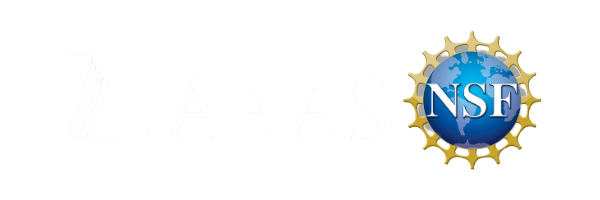AAAS S-STEM Initiative
This project will convene two S-STEM Symposia, one in 2019 and a second in 2021. The two Symposia will together provide at least 1300 participants with an opportunity to: (a) share and learn about effective STEM undergraduate education and workforce preparation strategies; (b) disseminate effective STEM undergraduate education and workforce preparation ideas to their colleagues and others; (c) make new connections and create collaborations; (d) promote a shared measurement system; (e) enhance communication; and (f) generate a sense of community among those seeking to expand academic opportunities for low-income STEM students.
This project's activities will include: 1) producing publications that document effective strategies and practices for increasing the number of talented students with demonstrated financial need pursuing a STEM education and career workforce; 2) co-sponsoring and implementing webinars for the S-STEM community; and 3) developing and maintaining a website that includes information about the symposia, S-STEM projects, and resources to advance research on recruiting, retaining, mentoring, and supporting high-achieving, low-income students with demonstrated financial need.
NSF S-STEM Program
The National Science Foundation (NSF) Scholarships in Science, Technology, Engineering, and Mathematics (S-STEM) program addresses the need for a high quality STEM workforce in STEM disciplines supported by the program and for the increased success of low-income academically talented students with demonstrated financial need who are pursuing associate, baccalaureate, or graduate degrees in science, technology, engineering, and mathematics (STEM).
The S-STEM program provides awards to Institutions of Higher Education (IHEs) to fund scholarships and to advance the adaptation, implementation, and study of evidence-based curricular and co-curricular activities that promote recruitment, retention, and graduation in STEM for low-income, academically talented students with financial needs.
The program seeks: 1) to increase the number of low-income academically talented students with demonstrated financial need obtaining degrees in STEM and entering the workforce or graduate programs in STEM; 2) to improve the education of future scientists, engineers, and technicians, with a focus on academically talented low-income students; and 3) to generate knowledge to advance understanding of how factors or evidence-based curricular and co-curricular activities affect the success, retention, transfer, academic/career pathways, and graduation in STEM of low-income students.
The STEM disciplines supported by the S-STEM program include:
Biological sciences (except medicine and other clinical fields);
Physical sciences (including physics, chemistry, astronomy, and materials science);
Mathematical sciences;
Computer and information sciences;
Geosciences;
Engineering; and
Technology areas associated with the preceding disciplines (for example, biotechnology, chemical technology, engineering technology, information technology, etc.)
The S-STEM program particularly encourages proposals from 2-year institutions, Minority Serving Institutions (MSIs), Historically Black Colleges and Universities (HBCUs), Hispanic Serving Institutions (HSIs), tribal colleges, and urban public and rural institutions.
For more information view the NSF site.

